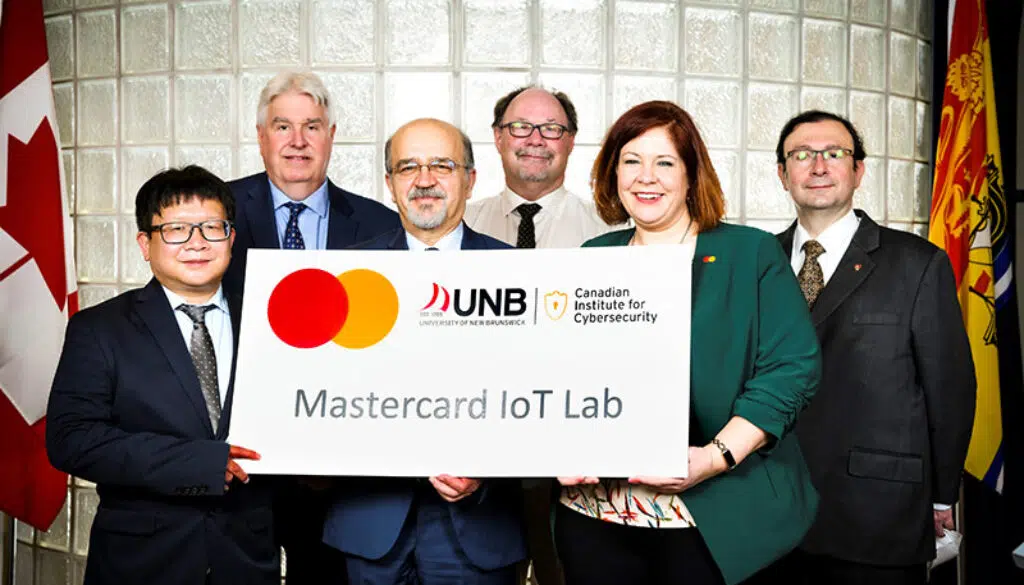
Image: UNB
Mastercard is investing $1.75-million in the University of New Brunswick’s Canadian Institute for Cybersecurity (CIC).
The money will help beef up CIC’s “internet of things” laboratory by establishing a research chair specializing in IoT security. It will also provide scholarships for students.
UNB researcher Dr. Rongxing Lu will be the new Mastercard IoT chair. Dr. Lu is an associate professor of computer science at UNB, with PhDs from both the Shanghai Jiao Tong University and the University of Waterloo.
The internet of things (IoT) is a broad term that covers the ever-increasing number of everyday devices connected to the internet—from smartwatches to lightbulbs to toasters.
Those devices are incredibly convenient but also pose significant cybersecurity risks. Mastercard says data breaches, ransomware, and attacks on critical infrastructure are becoming increasingly common. The company says the financial and privacy implications are driving it to invest in solutions.
“The pandemic era has advanced the shift to digital and as a result, attacks continue to grow in sophistication. As these trends accelerate, creating a safe and secure environment that users trust is essential,” Sasha Krstic, president of Mastercard in Canada, said in a news release.
Krstic says partnerships like the one with UNB will help the company share expertise and develop solutions to these risks.
“This investment by Mastercard addresses the core cybersecurity challenges we face as a society: the need for innovative tactics and technology to defend against malicious attacks, and for trained people to keep our online activities and transactions secure,” said Dr. Ali Ghorbani, the director of the CIC.
The Canadian Institute for Cybersecurity was established in 2017 on the back of investments from the provincial government, the federal Atlantic Canada Opportunities Agency, and UNB.
Together, the three institutions put up $4.5-million to create what the provincial government at the time called “an innovative hub for research, training, and industry collaboration.”
The idea was to bring together academia, industry, and government to help develop solutions to the growing number of cybersecurity threats facing Canadian society.
Former premier Brian Gallant also saw the centre as a way to create jobs and help shift New Brunswick towards a knowledge-based economy.
IBM Security was the institute’s first partner in research and development. The company has undertaken several research initiatives with the centre, including botnet detection, log data analysis, and network attack simulations.
Mastercard’s partnership with UNB is the latest in a series of cybersecurity-related investments the company has made in Canada. Those investments also include a $510-million investment in a global Intelligence and “Cyber Centre of Excellence” in Vancouver.
Trevor Nichols is the associate editor of Huddle, an Acadia Broadcasting content partner.






